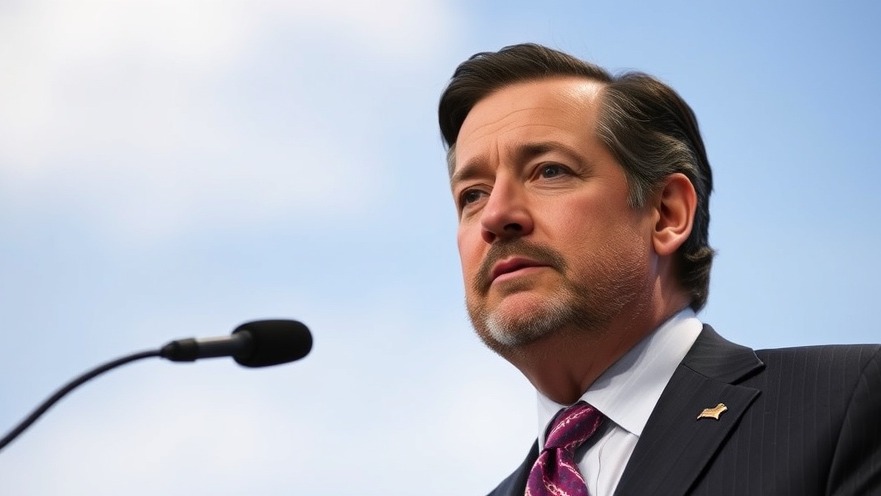
Texas Senator Ted Cruz Raises Alarm Over FCC's Actions
In a surprising turn, U.S. Senator Ted Cruz (R-Texas) has added his voice to the growing debate surrounding the Federal Communications Commission (FCC) chairman Brendan Carr's controversial actions regarding late-night host Jimmy Kimmel. Cruz's comments come in light of Carr's threat to revoke ABC's broadcast license following Kimmel's remarks about the alleged shooter of conservative activist Charlie Kirk. Cruz characterized Carr's warning as "dangerous as hell," likening it to behavior one might expect from a mafia figure.
A Dangerous Precedent for Free Speech
Cruz's reaction is significant, particularly because it contrasts sharply with the more muted responses from his Republican peers. While many Republicans have chosen to steer clear of the Kimmel controversy, Cruz openly criticized Carr's direct intervention, suggesting that it poses a substantial threat to free speech. He cautioned that such government meddling could backfire on conservatives in the long run. "If the government steps in to dictate what media can say, it sets a perilous precedent that may later be turned against us," Cruz asserted.
Public Backlash and Political Divides
The situation has sparked an intense reaction from both sides of the political aisle. Many Democrats view Carr's statements as a direct assault on First Amendment rights, framing it as an attempt to censor dissenting voices. Conversely, Republicans have been hesitant to publicly denounce Carr's approach. Senator Cynthia Lummis (R-Wyoming) indicated a shift in her previously unwavering support for free speech, suggesting that changing cultural attitudes have altered her perspective.
The Role of the FCC in Broadcast Licensing
The FCC's authority to regulate broadcast licenses is a critical aspect of this discussion. Carr's statement implied that ABC, as a public broadcaster, has obligations to ensure its content aligns with public interest standards. Yet, the question remains: where does the line lie between content regulation and censorship? Cruz argues that legal avenues, such as a defamation lawsuit against Kimmel, would be more appropriate than government intervention.
Future Implications for Texas Politics
Cruz's comments echo more extensive concerns among conservatives regarding media representation and freedom of expression. By invoking the threat of a retaliatory move from a future Democratic FCC, Cruz aims to rally conservatives to consider the broader implications of government intervention in media. What happens when the power to control content swings back to a party opposing their views?
Understanding the Media Landscape
It's essential for Texans and Americans alike to recognize the shifting landscape of media and government interaction. In recent years, the balance between free speech and regulatory oversight has been tested in numerous scenarios, raising questions about accountability, bias, and the future of media. Cruz has positioned himself as a gatekeeper for conservative media voices, hinting at the broader struggle for representation and fairness in American television.
Conclusion: The Road Ahead for Conservatives and Free Speech
As the debate continues, one thing is clear: the stakes are high for the future of media in America. Cruz's warning about potential overreach could resonate broadly with Texans as they navigate the complexities of 2025's political landscape, especially with the upcoming elections. Now is the time for all citizens to remain vigilant about the policies that govern freedom of expression and to ask questions about the role of government in regulating content.
 Add Element
Add Element  Add Row
Add Row 



Write A Comment